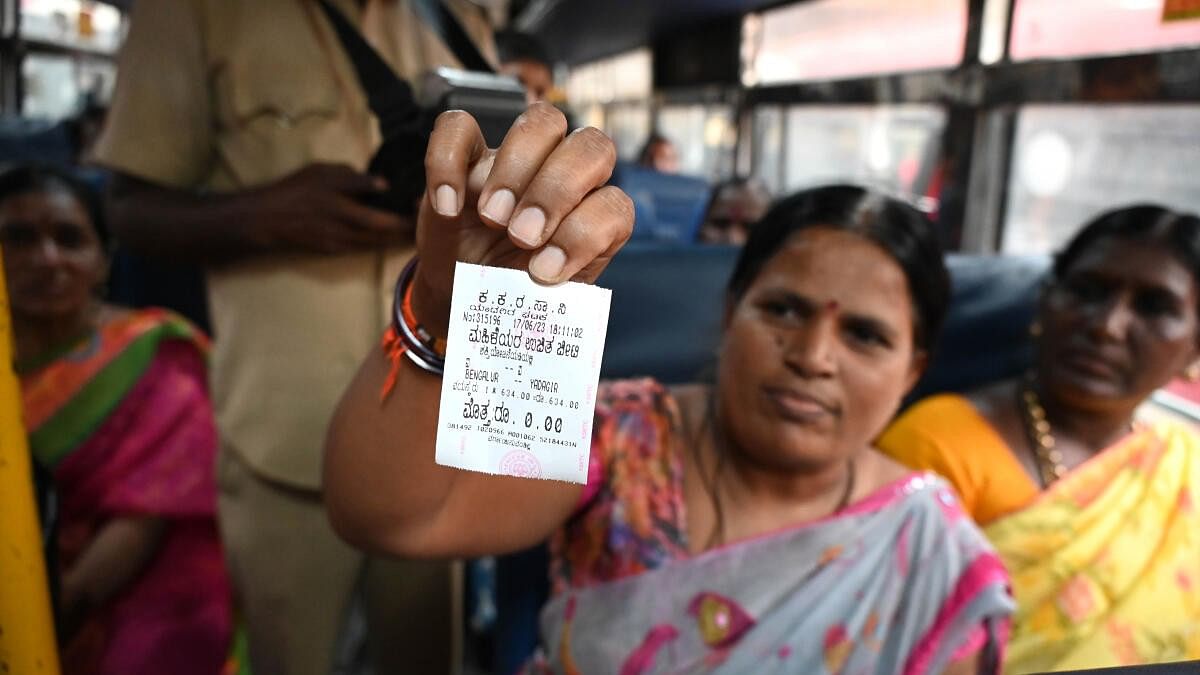
A woman shows free ticket in a KSRTC bus stand after Shakti scheme was launched in the state.
Credit: DH File Photo
The Shakti scheme of the Karnataka government has completed one year. It has proved its critics and cynics wrong and demonstrated how a well-directed welfare plan works in multiple beneficial ways in a layered society. The scheme ensures free travel for women within Karnataka, and the Congress government implemented it immediately after it came to power last year. It was an electoral promise and a political plan in the beginning, but when it was implemented, it turned out to be a beneficial social and economic project. A study done by the state’s Fiscal Policy Institute has found that it has enhanced women’s earnings and savings, improved their participation in the labour force, and boosted the state’s tax revenue. The monthly increase in the savings of women ranged from Rs 681 to Rs 1,326 across the state, and women’s participation in the labour force increased from 25.1% in October-December 2022 to 30.2% during the same period of 2023. The state’s GST collection increased by over Rs 309 crore.
The scheme helped to turn tens of thousands of women into economic and social agents of change. Over 180 crore bus rides were made by women till March end this year and the ticket cost that the government had to forgo was about Rs 4,380 crore. But it gained much, some of it directly and a lot more indirectly, and the positive impact is being felt in many areas. The money saved by women was spent productively on health, education and other needs of the family. The spending on essential items, consumer goods and services, and even on an odd fancy idea, gave a boost to related businesses and brought returns to them and the government. The millions of purchases and sales across the state made the gains stable, and it is predicted that the GST income would go up to Rs 371 crore in the current year.
One most remarkable outcome of the scheme is the increasing participation of women in the labour market. They have crossed gender boundaries and are increasingly taking up work beyond walking distance. A 5% increase in women’s participation is a major gain. Low participation of women in work has been a major problem for the state’s and country’s economy. Travel opens up new worlds and provides new experiences.
It gives a sense of freedom and empowers women not only financially but also socially. What has been criticised and scoffed at as a freebie is a public good which has value beyond its financial cost, and impact beyond individual trips. A Shakti bus ride is a ride to freedom for many women.